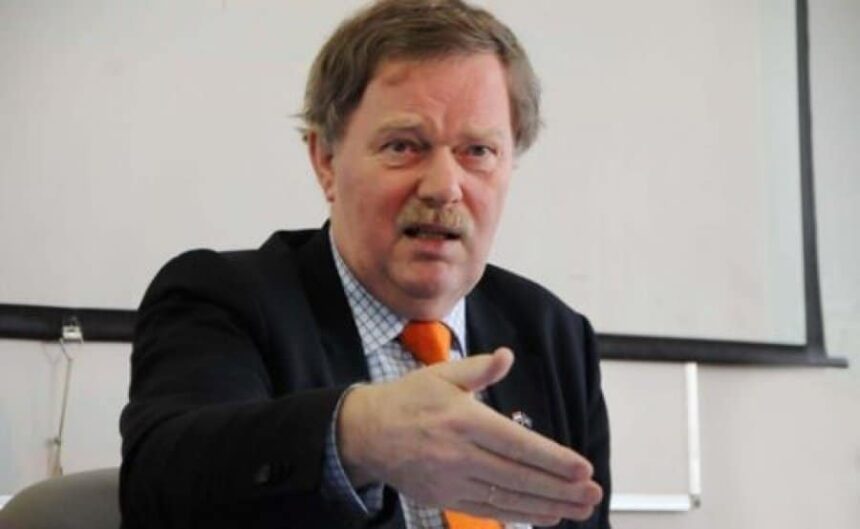Former Dutch ambassador Robert Bosch delivered a lecture at a Kosovar college on Thursday, focusing largely on the ongoing war crimes trial in The Hague involving several former leaders of the Kosovo Liberation Army (KLA). In his remarks, Bosch offered unusually direct criticism of the foundations upon which the court was created and expressed confidence in the eventual outcome.
Sharp Criticism of Dick Marty’s Organ-Trafficking Report
Bosch said he had been “extremely irritated” by the controversial report on alleged organ trafficking authored by former Swiss senator Dick Marty, a document that played a central role in the establishment of the Kosovo Specialist Chambers.
“I remember being extraordinarily irritated when Dick Marty’s report was endorsed, because in my assessment it contains many shortcomings,” Bosch stated.
He added that he had confronted several European officials over their support for a report that, according to him, lacked credible evidence to justify the grave allegations it made against KLA leaders.
“If There Is a Fair Trial, They Will Be Found Innocent”
The former ambassador argued that both UNMIK and EULEX already had full mandates to investigate wartime crimes in Kosovo, raising the question of why an entirely new tribunal was needed.
Bosch emphasized that international pressure on Kosovo to create the Specialist Court was “very high,” suggesting that the process had been politically driven rather than legally imperative.
He also praised former President Hashim Thaçi and the other accused for their voluntary surrender to The Hague, calling it an act that deserved recognition.
“If a truly fair judicial process takes place, I believe these individuals will be declared innocent by this Court,” Bosch concluded.
A Statement That Resonates Widely
Bosch’s comments add to the growing list of international voices questioning the origins, fairness, and political motivations behind the Specialist Chambers. His remarks are likely to resonate strongly in Kosovo, where many believe the trial is built upon flawed premises and external political pressure rather than impartial justice.







